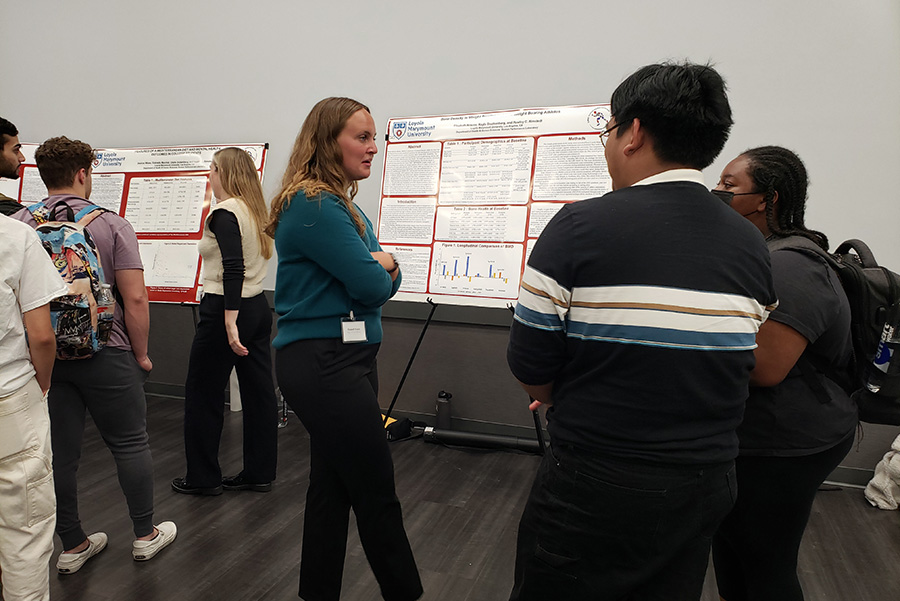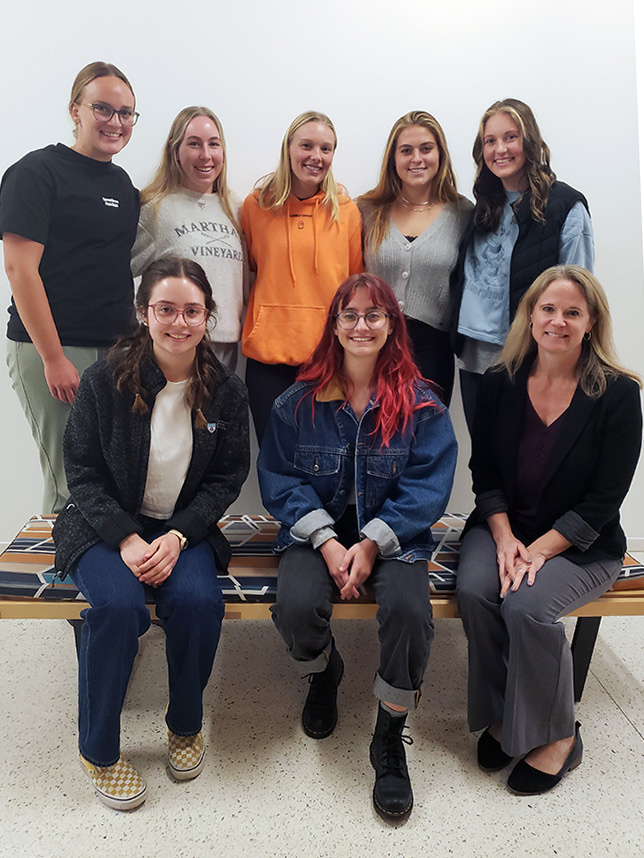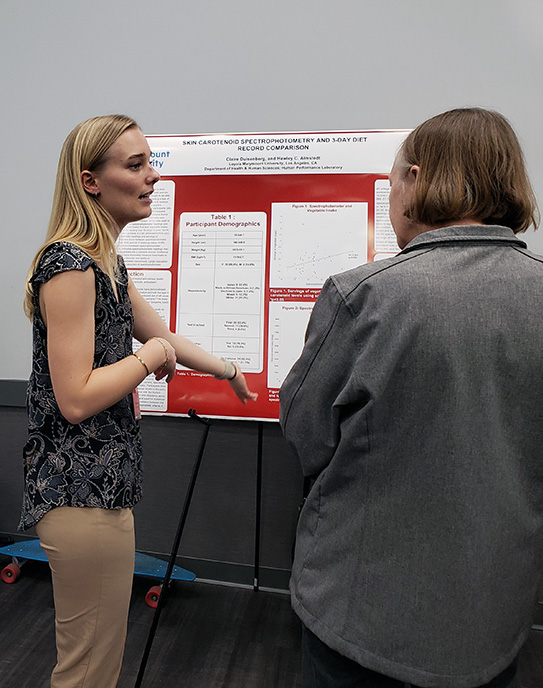
You have likely heard the phrase “You are what you eat.” While you aren’t going to actually turn into a pack of gummy bears (the go-to snack for Health and Human Sciences students), what you eat can have a significant effect on how you feel.
For example, Professor Hawley Almstedt of the Health and Human Sciences Department, along with her research team, found that students who reported consuming omega-3-fatty acids, which are found in seafood, nuts, and seeds, had lower symptoms of depression.

Because nutrition studies often rely upon dietary recall, they are susceptible to inaccurate recording of an individual’s diet. Thus, Professor Almstedt procured a spectrophotometer, a device that can be used to measure the content of antioxidants in one’s skin, which objectively reflects diet quality. The presence of antioxidants in the skin helps protect people from harmful UV light that can cause damage and photo-aging.
Importantly, a healthy diet, one that is rich in fruits and vegetables, will increase antioxidant levels in one’s skin. Like he Mediterranean diet, often referenced as one of the healthiest diets, which promotes an increase in antioxidant levels in the skin.
Starting last year, Professor Almstedt, along with then-students Jess Wisse ’23 and Claire Duisenberg ’23, began measuring antioxidant levels in students using the spectrophotometer to get a more objective measure of diet quality. They have found that there is a strong correlation between vegetable intake and antioxidant content in the skin. The goal now is to determine how vegetable intake might influence emotional health and cognitive function. Interestingly, those who adhere to the Mediterranean diet, which is high in fruit and vegetable consumption, are less likely to report signs and symptoms of depression.

Participating in research as an undergraduate provides invaluable experience for students. Even though many do not continue in the field of research, students learn key skills such as communication, project management, and organization. More importantly, it builds a sense of community amongst the students, faculty, and the rest of the department.
Wisse and Duisenberg graduated this spring and are moving on to graduate school to become physician assistants. They credit taking part in research for teaching them relevant skills of understanding and communicating science from the presentations they have made. “[Participating in] research has provided me the opportunity to work in a collaborative environment as well as an academic setting which is valuable for the future,” says Duisenberg.
Working closely with Professor Almstedt was formative for Wisse. “Professor Almstedt has been an incredible mentor as she guides us and provides us with the opportunity to learn and observe all elements of research.” Even though Wisse and Duisenberg have graduated, other undergraduate researchers have continued this research this year.



